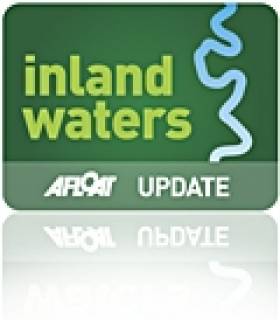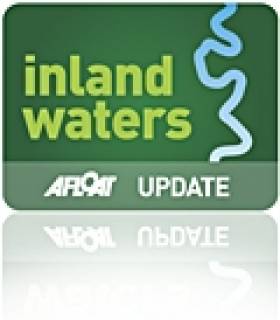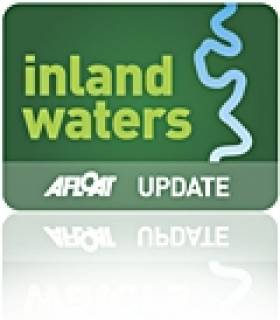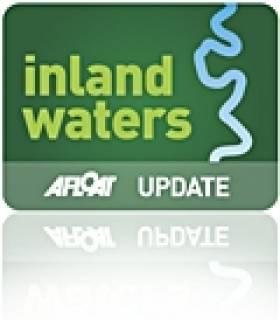Displaying items by tag: inland waters
IWAI Decries 'Information Vacuum' Over Canal Bye-law Changes
#InlandWaters - Four weeks after its review by a joint Oireachtas committee, there is still an "information vacuum" regarding feedback on the proposed changes to Ireland's canal bye-laws, according to the Inland Waterways Association of Ireland (IWAI).
A meeting organised by the IWAI at a rally in Hazelhatch on the Grand Canal over the Easter weekend heard surprise among members that none of the some 2,000 individual submissions have been acknowledged, nor have these submissions been published on the Waterways Ireland website.
Members also expressed disappointment that no timeframe for the submissions review process has been announced.
The IWAI remains steadfast in its opposition to the current proposed amendments to canal bye-laws, which were recently rejected in a unanimous vote by Kildare County Council over concerns that they "do not put user requirements, tourism development and local communities at the centre of the regulations."
Hundreds of houseboat owners on Ireland's inland waterways would also be affected by the proposed changes that could see additional charges levied on different classes of canal and river users.
Talk on Moneypenny Canoe Trail
The talk takes place at the Millennium Arts Centre, William Street, Portadown.
More on Northern Ireland's Canoe trails HERE
More on the Moneypenny trail HERE
Section of Grand Canal to Close During Build of House Boat Berths
PROVISION OF HOUSE BOAT BERTHING AREA
The works site will extend from Griffith Bridge for approximately 350m eastwards of the bridge. Temporary dams will be constructed in the vicinity of this site. Due to low and/or possibly fluctuating water levels between the site and the 34th Lock, it is strongly advised that boats should not be moored between the site and the 34th Lock. Adequate berthage is available East of the 34th Lock. There will be no pedestrian or vehicular access through the work site. Pedestrian and vehicular entry/exit access will be via the south canal bank at L'Estrange Bridge for the duration of the works.
TRANS-SHIPMENT SHED CANOPY REMOVAL AND ASSOCIATED REMEDIAL WORKS
These works will extend for a period of approximately six weeks from November 1st 2010. Boats will not be permitted to moor in the vicinity of the work site during this period. The work site will extend from the 35th Lock for approximately 125m Eastwards, to a point approximately 15m beyond the Eastern gable of the trans-shipment shed. There will be no vessel mooring in the vicinity of the work site. There will be no pedestrian or vehicular access along the northerly canal bank from Griffith Bridge towards the 35th and 36th Locks for the site work duration.
Consultation on Proposed Waterways Bye Laws Sought
Waterways Ireland has commenced the first Phase of a Public Consultation programme on proposed new Bye-laws for all seven inland waterways under its remit. Bye-laws facilitate the management of a waterway, clearly outlining the roles and responsibility of Waterways Ireland and all the people involved in using the navigation, whether for recreational or commercial purposes.
It is intended that the proposed new Bye-Laws will reflect the breadth of modern day use of the waterways; bringing consistency in navigational rules across the waterway network. The new Bye-laws are also expected to facilitate waterway users understanding of their responsibilities in sharing this multi-functional environment. Whether the waterways users are in Killaloe (Shannon Navigation), Coleraine(Lower Bann), or Tullamore (Grand Canal) the same navigational rules will apply. Due to important differences in the enabling legislation in both jurisdictions as well as legislative and court procedures, Waterways Ireland will introduce the new Bye-laws separately in Northern Ireland and Ireland.
Waterways Ireland has considered global best practice, feedback from users and stakeholders and the individual characteristics of the different waterways in developing the new Bye-laws. Future proofing the Bye-laws has been an important feature of the drafting process to ensure they remain fit for purpose.
Phase 1 of the public consultation will be directed at stakeholders; groups who represent the interests of waterways users and organisations whose statutory remit could be affected. Stakeholders in each jurisdiction will receive the relevant Bye-laws for a 12 week consultation period. Copies of the Bye-laws of the other jurisdiction are available on request from Waterways Ireland HQ. Stakeholders are requested to hold internal discussions with their constituents before providing a single response to the draft Bye-laws.
The deadline for the end of Phase 1 of the Public Consultation is the 15th October 2010. Thereafter, the entire Bye-laws will undergo a further examination and revision, informed by the analysis of the responses received. Phase 2 will only commence once this full revision has taken place.
Phase 2 of the Public Consultation Programme is public meetings. These meetings will be held along each of the waterways and will be widely advertised and open to all who wish to attend.
Prior to Phase 2 of the consultation programme, copies of the revised Bye-laws will be downloadable from the Waterways Ireland website www.waterwaysireland.org. They will be distributed to all those attending the public meetings. Alternatively, they can be issued to individuals by email or post on request.
The completion of the public consultation programme will be followed by a further revision of the Bye-laws to take account of the points raised at the public meetings. The enactment of the legislation in each jurisdiction will follow.
For further information on Phase 1 or Phase 2 of the Public Consultation process contact [email protected] or Tel no +44 28 6634 6202.
































































